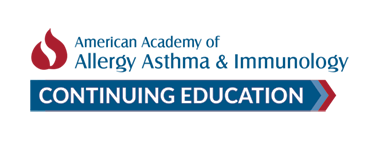The Mastocytosis Society 20th Anniversary Annual Conference and Physician CME Day 2014
This is a live activity on September 17, 2014 in Rochester, MN.
Online registration is now closed.
This CME offering from The Mastocytosis Society, Inc. (TMS) focuses on the critical role which mast cells play in urticaria and in mast cell disorders, both cutaneous and systemic. Physician specialists from major research centers all over the world will be presenting current updates on pathophysiology, diagnosis, treatment, prognosis and outcomes of experimental modalities.
Topics will include pediatric mastocytosis, systemic mastocytosis, mast cell activation syndrome, bone marrow and tissue pathology in patients with mast cell disorders, aggressive mastocytosis and mast cell leukemia, neuropsychiatric manifestations of mast cell disorders, mast cells and the heart, bone pain and osteoporosis, urticaria (3 separate modules), insect anaphylaxis in patients with mast cell disorders, gastrointestinal manifestations of mast cell disorders, mast cells and stress, and more. (These topics are subject to change).
TMS is a 501(c)3 organization dedicated to supporting patients affected by mastocytosis or mast cell activation syndrome as well as their families, caregivers and physicians through research, education and advocacy.
Registration Rates:
Member Physician (includes continental breakfast and lunch): $65.00
Non-Member Physician (includes 1 year TMS Membership, continental breakfast and lunch): $100.00
Member Nurse/Allied Health (includes continental breakfast and lunch): $30.00
Non-Member Nurse/Allied Health (includes 1 year TMS Membership, continental breakfast and lunch): $65.00
Fellows: $0.00 - Enter Coupon Code In Shopping Cart: TMSFELLOWS
Credit must be claimed by June 30, 2015. Any credit request on or after July 1, 2015 will be subject to an administrative fee.
System Requirements: Two most recent versions of Internet Explorer, Safari, Google Chrome, and Firefox
Target Audience
| Allergist and Immunologists | Dermatologists |
| Gastroenterologists | Hematologists |
| Pediatricians | Endocrinologists |
| Orthopedists | Cardiologists |
| Neurologists | Urologists |
| Rheumatologists | Psychiatrists |
| Psychologists | Registered nurses |
| Pharmacists | Physical and Occupational Therapists |
| Students of any of the above disciplines |
Learning Objectives
Upon completion of this activity, participants should be able:
Pathophysiology:
- To define the role of mast cells and mast cells mediators in the pathophysiology of urticaria and angioedema.
- To describe the role of autoantibodies in chronic urticaria.
- To discuss the importance of mast cell releasing factors.
- To discuss the importance of inflammatory cells other than mast cells.
- To identify the mechanisms of disease of urticaria in simulated patient data.
Epidemiology:
- To describe the incidence and prevalence of urticaria.
- To discuss the demographics of patients with acute and chronic urticaria.
- To discuss the effects of urticaria on impairment and quality of life.
- To describe the burden of disease caused by urticaria in sample population data.
Management of Acute and Chronic Urticaria:
- To outline the assessment of disease activity.
- To discuss the importance of treatment or avoidance of underlying causes and potentiating factors (e.g. heat).
- To describe guideline-driven therapy for chronic urticaria.
- To discuss the rationale and efficacy of omalizumab and other alternative therapies for chronic urticaria.
- To accurately apply evidence-based recommendations for the management of urticaria in simulated patient encounters.
Mastocytosis and Mast Cell Activiation Disorders:
- Learner will be able to discuss basic mast cell biology including most common mediators released during mast cell activation, and can interpret symptoms related to these mediators.
- Learner can also implement appropriate treatment decisions based on mast cell activation symptomatology being manifested.
- Learner will be able to describe what mast cell disorders are, the main two categories of mastocytosis and MCAS, and is able to clearly differentiate them.
- Learner will be able to discuss the main symptoms of mast cell activation, and will know what symptoms to ask patients about even if the patient does not mention them.
- Learner will be able to interpret the symptoms in terms of what mediators are the cause of them.
- Learner will be able to differentiate between the different forms of mastocytosis, and know what is needed to make a confirmed diagnosis for each.
- Learner can describe mast cell activation, and how to diagnose it.
- Learner understands that systemic mastocytosis can occur with or without mast cell activation syndrome concurrently, and how that difference can affect treatment.
- Learner will discuss “B” and “C” findings and know how to analyze when cytoreductive treatment is indicated.
- Learner will understand prognosis for the different variants of mast cell disorders, and how to convey these to patients.
- Learner will come away with a strong sense of the chronic, disabling nature of these disorders, and the tremendous disequilibrium that results in the families affected by them.
- Learner will develop a comprehensive care plan that involves care coordination and psychosocial support which reflects this newly acquired understanding of the chronic, disabling nature of these disorders.
Available Credit
- 8.00 AttendanceAttendance credit.
- 9.60 CECE credit.
- 8.00 CMECME credit.

 Facebook
Facebook X
X LinkedIn
LinkedIn Forward
Forward